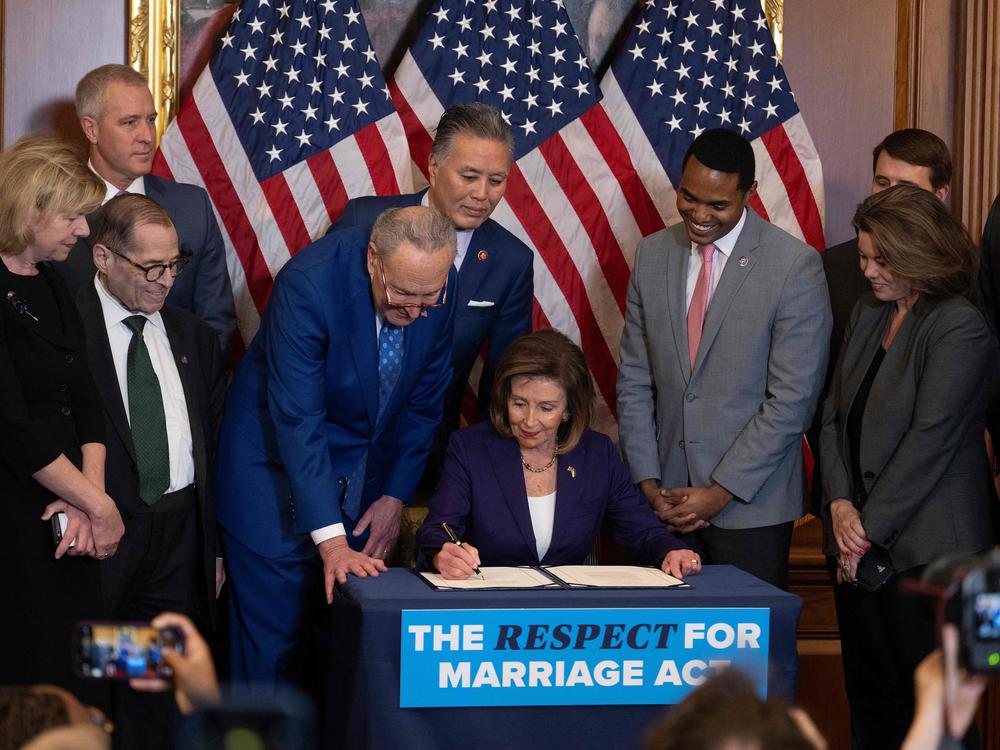Section Branding
Header Content
Respect for Marriage Act clears Congress with bipartisan support
Primary Content
Updated December 8, 2022 at 12:06 PM ET
Both the House and the Senate have passed the Respect for Marriage Act, which codifies same-sex and interracial marriages. The bill will head to President Joe Biden's desk to be signed into law, which is expected to happen soon.
The legislation passed 258-169 in the House Thursday with bipartisan support, after passing through the Senate last week with a 61-36 vote. Twelve Republican senators voted in favor of the bill.
Several LGBTQ members of Congress spoke on the House floor ahead of the vote, including Rep. Mark Takano, D-Calif., the first openly gay person of color in Congress.
"This bill will pass today but it is a reminder of the necessity of our vigilance in the fight for the human rights and need to hold the judicial branch accountable," Takano said. "We must rise to the challenge and we will prevail."
The bill would require that all states recognize same-sex and interracial marriages performed in any other state. It would not require that states individually allow these marriages to be performed. The measure also would recognize these marriages for consideration of federal benefits such as Medicare and Social Security.
Amendments to the original House-passed bill, led by GOP negotiators Sens. Susan Collins, Thom Tillis and Rob Portman, make sure that nonprofit religious organizations are not required to help perform a same-sex marriage.
The measure was first born out of the House this summer following the Supreme Court's decision in Dobbs v. Jackson, which held that access to abortion was not a constitutional right. Marriage rights advocates and Democrats expressed concern that the reversal could call other decisions regarding civil liberties into question, including marriage equality.
In his concurring opinion of the Dobbs case, Justice Clarence Thomas made a point to say that the landmark 2015 case that legalized same-sex marriage, Obergefell v. Hodges, rests on the same legal principles that underscored Roe.
While no case challenging the right to marry has yet made it to the Supreme Court, advocates feared Thomas was setting the stage for Obergefell's reversal.
The legislative victory comes as somewhat of a surprise
House Democrats brought up the legislation months before the midterm election with little to no expectation that it would become law so quickly, but rather to put Republicans on record on a social issue that has the vast support of American society. But when a notable number of House Republicans joined with Democrats to pass the bill, it ultimately forced the Senate to act on legislation that Democratic leaders did not initially have on their Fall agenda.
In November, after the dozen Republican senators voiced support for the legislation in a vote that ended debate on the measure, it permitted the legislation to advance toward a final vote in the upper chamber, which was held last week.
As vice president, Biden publicly broke with then-President Barack Obama to voice support for same-sex marriage rights in 2012. Obama ultimately joined him.
Copyright 2022 NPR. To see more, visit https://www.npr.org.

